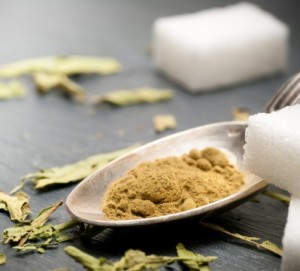February is American Heart Month! You may think you already know everything there is to know about heart health. You know what to eat, what to avoid, what to do, and what not to do.
But, are you really so sure?
It’s always a great time to learn more about keeping your heart healthy. And, it’s even to commit to a few healthy habits that will support heart and full-body health.
To start, find our how heart health savvy you are. Take our quiz and see what you know, what you don’t know, and what you can do to bolster your heart health!
Are You Heart Health Savvy? True or False Questions.
Take our heart health savvy quiz by answering each below as true or false.
1. Saturated fats are the only harmful fat in your diet.
2. The majority of cholesterol in the blood stream originates from the diet.
3. Fruits and vegetables are great for fiber and cancer risk, but don’t affect heart health.
4. All LDL cholesterol is harmful and creates plaques in arteries.
5. Lifting weights, along with cardiovascular exercise, encourages heart health.
6. You only need to know your Total Cholesterol, LDL, and HDL to assess your cholesterol and heart health risk.
7. Mental stress can cause physical harm to the heart.
8. Your physical flexibility has no effect on heart health.
9. You shouldn’t use avocado oil because it has more cholesterol than extra virgin olive oil.
10. Elevated blood sugars do damage to heart health.
11. If you don’t eat animal products, you simply don’t have to worry about the fats in your diet.
12. Inadequate sleep is correlated with heart health risk.
13. If the nutrition labels shows zero grams transfats, there are no transfats in the product.
14. Loneliness is a heart health risk factor.
15. Eating eggs has been proven to elevate both heart health risk and diabetes risk.
Are You Heart Health Savvy? True or False Answers.
1. Saturated Fats are the Only Harmful Fat in Your Diet. FALSE
While saturated fats may elevate “bad cholesterol” in the blood stream, another type of fat is causing incredible harm. In fact, according to a recent study with 100,000 participants, this fat increases the overall risk of death (1). The fat is in processed foods, and it is most commonly hydrogenated oils or soybean oil. These fats work against heart health by hurting:
- Metabolic Health. Lab studies show that soybean oil is one of the most detrimental foods to metabolic health (2).
- Cardiovascular Health: Soybean oil has been shown to cause harmful abnormalities to cholesterol and triglycerides (3).
- Overall health and inflammation: Many studies have concluded that concentrated sources of omega-6 fats increase inflammation in the body (4).
2. The majority of cholesterol in the blood stream originates from the diet. FALSE
Only about 20% of the cholesterol in your body comes from your diet. The rest is synthesized your liver and intestines (5).
3. Fruit and Vegetables are Great for Fiber and Cancer Risk, but Don’t Affect Heart Health. FALSE
Vibrant plant foods are full of antioxidants.
Antioxidants support cellular health, arterial health, and whole body health by reducing the effects of free radicals and oxidative stress (6).
Specifically in the cardiovascular system, antioxidants work to reduce cholesterol plaque formations and elevated blood pressure (7). Additionally, foods high in antioxidants support brain cells (8), and may reduce harmful cell overgrowth. (Many studies also back up the health benefits of berries (9).
4. All LDL cholesterol is harmful and creates plaques in arteries. FALSE
As most people know, there are two primary types of cholesterol, Low-density lipoproteins (LDL) and High-density lipoproteins (HDL) cholesterol.
LDL cholesterol is taught as “bad,” and HDL as “good.” But there’s more to it than that.
There are actually two sub-groups of LDL particles. LDL subtype A is a large fluffy cholesterol particle that is less prone to oxidation and less likely to stick to arterial walls. LDL subtype B is a smaller and denser particle that is easily oxidized and more likely to build up in the arteries.
Subtype A LDL cholesterol is not necessarily a threat, and only oxidized LDL cholesterol forms plaques (10).
5. Lifting weights, along with cardiovascular exercise, encourages heart health. TRUE
We all know sedentary lifestyles are bad for heart health and exercise is beneficial. But, how and why?
Exercise forces our hearts to pump a great volume of blood through our arteries. This forces our arteries to stay flexible and elastic, which is a healthier state than stiff or inflexible arteries.
Any exercise that increases heart rate can be beneficial to heart health.
For example, both endurance training at lower intensity and higher intensity workouts benefit blood pressure and heart health (11).
Resistance training exercises (weight lifting) also supports heart health including heart variability. This remains true for both heavy weight lifting and high-rep, low weight exercises (12).
6. You only need to know your Total Cholesterol, LDL, and HDL to assess your cholesterol and heart health risk. FALSE
Interestingly, more and more practitioners are looking at the ratio of triglycerides (TG) to HDL. In fact, when you calculate this ratio, you can infer your health risk of cardiovascular issues, blood sugar issues, inflammation and more.
Divide your triglycerides by your HDL cholesterol levels. Studies have found that a number of 1.0 or less is likely indicative of lower risk, and a number of 3.0 or more of highest risk.
Interestingly, a lower ratio is also linked to healthier LDL subset particle size (less subset B) (13, 14).
7. Mental stress can cause physical harm to the heart. TRUE
High levels of mental stress can be devastating to your heart, brain, immune system, and overall health. In fact, chronically elevated cortisol (the stress hormone) levels can affect all our body’s systems. High blood cortisol levels are correlated with weight gain and impaired loss, negative impacts on mood, sleep and energy, an increased incidence of blood sugar, potentially lower brain volume and impaired memory, and heart health issues including altered blood pressure (15).
8. Your physical flexibility has no effect on heart health. FALSE
Amazingly, the flexibility of your spinal cord and spine directly correlated with the flexibility of your arteries. Again, flexible arteries are crucial for healthy blood pressures and overall health. As crazy as it sounds, researchers have found that poor trunk flexibility is associated with stiff arteries. This means that keeping your body flexible enough to touch your toes means better artery health and blood pressure (16). Incredibly, one study of a stretching program found better blood pressure results from stretching than from walking (17)!
9. You shouldn’t use avocado oil because it has more cholesterol than extra virgin olive oil. FALSE
Both avocado oil and olive oil have zero milligrams of cholesterol. Foods derived from plants do not contain cholesterol. The synthesis of cholesterol requires a liver, so it is only synthesized by animals and humans.
10. Elevated blood sugars do damage to heart health. TRUE
Without a doubt, elevated blood sugars contribute to stiffened arteries (18). Stiffened arteries contribute to high blood pressure, which elevates your risk of a heart attack or stroke.
11. If you don’t eat animal products, you simply don’t have to worry about the fats in your diet.
Even if you don’t eat animal products, you certainly still have to be wise regarding fat sources. Almost all processed foods, whether vegan or not, contain harmful processed fats such as soybean oil or hydrogenated oils. See #1 above.
12. Inadequate sleep is correlated with heart health risk. TRUE
Inadequate sleep has been found to elevate the risk of heart health issues. In fact, a recent study published in the Journal of the American Heart Association looked at sleep and its effects on those with chronic health conditions over 20 years. The study included 1,654 participants aged 20-74 years.
The researchers found that participants with existing high blood pressure or Type 2 diabetes, who slept less than 6 hours per night, were 1.8 times likely to die of heart disease or stroke. Unfortunately, 45% of Americans have these conditions, and the majority do not get enough quality sleep (19).
13. If the nutrition label shows zero grams transfats, there are no transfats in the product. FALSE
Unfortunately, the numbers on nutrition labels are allowed to be rounded. In the case of transfats, which are almost always very small numbers, anything 0-0.4 grams is rounded down to zero. Unfortunately, even small amounts are harmful. To assess whether there are transfats and/or processed soybean oil in a food, look at the ingredient list.
14. Loneliness is a heart health risk factor. TRUE
In 2010, a loneliness study shocked researchers. A research team from Brigham Young University looked at 148 studies, representing more than 308,000 participants for mortality risk factors. The researchers found a 50% increase in survival for those who were NOT lonely and had strong social relationships compared to those who didn’t. This finding was consistent with other strong risk factors of premature death, including known cardiovascular risk factors (20).
Next, the same lead researcher performed a subsequent meta-analysis in 2015, representing more than 3.4 million people and found similar results. These included a 29%, 26%, and 32% increased risk of premature death for social isolation, loneliness, and living alone, respectively (21). Yet another study from Denmark found that heart health patients who were also lonely were about twice as likely to die from heart attacks and/or heart disease than those who were not lonely.
15. Eating eggs has been proven to elevate both heart health risk and diabetes risk. FALSE.
A recent large study from the University of Sydney found that egg consumption of up to 12 eggs per week did not increase the risk of diabetes or negatively affect heart health markers (22). To learn more, see this post.
Are you Savvy? Want to Know More?
How did you do? There’s always room to improve health knowledge and habits. If you’d like to hear more from the doctor himself, check out our recent podcast on good fats and bad fats to hear insight from Dr. Colbert!
Bottom Line
Whether you’re already heart health savvy or ready to learn more, it’s time to take action. Start by listening to Dr. Colbert on this subject, then get started on your own heart healthy Beyond Keto journey. Don’t let another February pass without developing heart healthy habits!

















